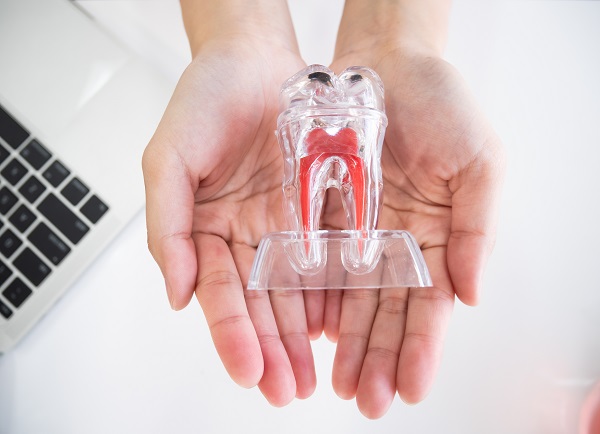Root canals are dental procedure that can save an infected, damaged or severely decayed tooth from becoming lost. Root canal therapy is often necessary when other treatment options are not an option. It is important to know the signs that a root canal is necessary to ensure the long-term health of the tooth.
What is a root canal?
A root canal procedure is like a tiny Roto-Rooter, cleaning out decay and preserving the infected tooth.
During a root canal procedure, your dentist will:
- extract bacteria and decay from the tooth pulp, root, and nerve
- disinfect the area with antibiotics
- fill the empty roots
- seal the area to prevent new decay
A root canal can be done by your general dentist or a specialist known as an endodontist.
The root canal treatment leaves your natural tooth in place and prevents further decay. But it makes the tooth more fragile. That’s why a tooth that’s had a root canal is often covered with a crown.
When a root canal might be necessary
When determining whether or not a root canal is necessary, the dentist will examine the patient’s symptoms and the severity of the symptoms. The following are four of the more commonly reported symptoms among patients who are in need of root canal therapy to prevent a tooth infection from spreading or the tooth from falling out.
Severe toothache
A severe toothache is perhaps the most common symptom that indicates a root canal is necessary. This is because the dental pulp in the root of a tooth contains nerves and blood vessels. When these nerves and blood vessels are exposed or damaged, then it can lead to chronic pain. If left untreated, the severe toothache will grow increasingly worse and inevitably lead to tooth loss. Although not every instance of a severe toothache is due to a tooth infection that requires a root canal, it does require a prompt visit to the dentist to determine the root cause.
Sensitivity upon pressure
Along with chronic pain, many patients also experience tooth sensitivity. Specifically, patients who are in need of a root canal due to tooth damage, a tooth infection or severe decay will experience sensitivity when there is pressure placed upon the affected tooth. They may also be vulnerable to sensitivity when the tooth is exposed to hot and cold temperatures from foods or drinks. This indicates that there are issues with the root of a tooth. A root canal can remove the infected pulp and treat tooth sensitivity.
Prolonged gum complications
Issues with the gums may also indicate a root canal is necessary. Most notably, gum swelling, discoloration and tenderness may occur. If these symptoms exist along with tooth pain and sensitivity, then a root canal may in order. Gum swelling that is minor and exists on its own may not be an immediate cause for concern, but more severe gum complications do require a prompt consultation visit with the dentist.
Discoloration and deep decay
Anytime the roots of a tooth is affected by deep tooth decay, a root canal may be in order. This is why it is important to treat minor cavities as quickly as possible. If more severe decay is detected, then a dental filling may not be enough to entirely fill the cavity, and a root canal may be the best choice in this instance.
A dentist can help you through root canal therapy
Root canals therapy is never a fun experience, but our friendly dental team is here to help you through the treatment process. If you want to learn more about root canals therapy and determine if it is right for you, then reach out to our team today.
Does a root canal hurt?
A root canal procedure sounds scary, but with today’s technology, it’s typically not a whole lot more different than having a deep filling. There’s little to no pain because your dentist will use local anesthesia to numb your tooth and gums so you’re comfortable during the procedure.
If you need a root canal and have facial swelling or a fever, your dentist may give you antibiotics beforehand to kill the infection. This may also help reduce your pain.
The root canal procedure itself is similar to getting a large filling, but it’ll take longer. Your mouth will be numbed while the dentist cleans out the decay, disinfects the roots, and then fills them in.
Your dentist will use a rubber dam around the root canal tooth. This will help prevent any infected material from spreading to the rest of your mouth.
Your mouth may feel sore or tender after the root canal. Your dentist may suggest that you take an over-the-counter pain medication such as acetaminophen (Tylenol) or ibuprofen (Advil).
A 2011 review of 72 studies of root canal patients looked at pre-treatment, treatment, and post-treatment pain.
The analysis found that pre-treatment pain was high, but dropped moderately within a day of treatment, and then dropped substantially to minimal levels within a week.


